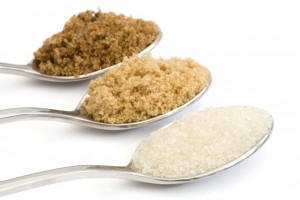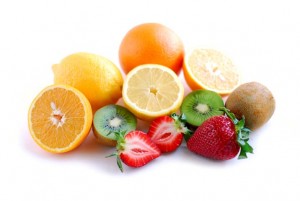It’s getting to that time of year when it becomes socially acceptable to stuff yourself full of the fattiest foods imaginable and then do nothing for 48 hours. You may be one of those people who is planning on upping your exercise regime to compensate for the increased calories consumed over the holidays. Unfortunately, I have some bad news for you: It’s probably not going to work.
Exercise and weight loss: is it a myth?
 It’s long been burned into our brains that doing exercise is a good way for us to lose weight. This link was first noted by the scientist Jean Mayer in the 1950s, who observed that girls who did less physical activity tended to be obese. Since then, we’ve been regularly targeted with gym adverts and equipment aimed to get us moving and help us lose weight. You “burn off” calories when you exercise and so don’t gain weight, right?
It’s long been burned into our brains that doing exercise is a good way for us to lose weight. This link was first noted by the scientist Jean Mayer in the 1950s, who observed that girls who did less physical activity tended to be obese. Since then, we’ve been regularly targeted with gym adverts and equipment aimed to get us moving and help us lose weight. You “burn off” calories when you exercise and so don’t gain weight, right?
However, in recent years the message has become increasingly confusing. There is an increasing level of evidence (examples here, here and here) that suggests that exercise alone is not an efficient way to lose weight. According to the Mayo Clinic, you’d have to remove 500 calories every day for a week to lose 1 pound in weight. To put that in context, you’d have to do about an hour of high-impact aerobics every day for a week to burn off 100 grams worth of cookies. Not eating the cookies in the first place would be a far more effective way of losing weight.
It is important to remember that exercise is important for maintaining your weight. Therefore if you’re trying to lose weight and keep it off, experts believe that the best thing to do is to gradually reduce the amount of calories you eat but also to do regular exercise. People who crash diet or severely restrict the amount of calories they eat have a tendency to regain weight quickly once the diet is over. Crash dieting also leads to other health problems and can even reduce your ability to lose weight in the long term.
Another message which seems to be getting lost is that there is a big difference between “weight” and “health”. Exercising will keep your body and mind healthy. Some scientists believe that being obese does not necessarily mean that you are unhealthy in the same way that being thin does not automatically make you fit. It would be better if people aimed to be “healthy” rather than “thin” and exercise is essential if you want to be healthy.
Sugar, sugar
 Even more confusing than the exercise/weight loss conundrum is the recent idea that fatty foods such as butter and red meat may not be as bad as we thought. Some scientists, such as Dr Robert Lustig, believe that it is sugar, not fat, which is causing the current obesity trend. Dr Lustig attributes the toxicity and addictive nature of sugar (specifically fructose) to the rise in obesity levels. The increase in sugary drink consumption has also been attributed to the skyrocketing levels of type 2 diabetes.
Even more confusing than the exercise/weight loss conundrum is the recent idea that fatty foods such as butter and red meat may not be as bad as we thought. Some scientists, such as Dr Robert Lustig, believe that it is sugar, not fat, which is causing the current obesity trend. Dr Lustig attributes the toxicity and addictive nature of sugar (specifically fructose) to the rise in obesity levels. The increase in sugary drink consumption has also been attributed to the skyrocketing levels of type 2 diabetes.
This advice has been taken on board by some governments. In the UK, the official line from the NHS is still that obesity is caused by “eating too much and moving too little”. However, the Swedish government has implemented a dogma of eating a high-fat, low-carb diet. This is essentially a less extreme version of the Atkins diet in that you limit the amount of carbohydrates you eat (including sugar and “starchy” foods such as potatoes, pasta and wheat bread) but can eat as much butter, cream and bacon as your heart desires. This diet could also explain the French Paradox; that is, the observation that people in France are relatively healthy despite a high consumption of fatty food.
When is a healthy food not healthy?
 When it’s a smoothie. If you take into account the idea that sugar, not fat, is the cause of the country’s dietary health crisis, then smoothies and fruit juices are unfortunately categorised as “a bad thing”. It seems hard to stomach after being told for so long that fruit is a “healthy” alternative but fruit is packed full of sugar. More sugar is released from fruit when it is in liquid form. You’ll be relieved (or horrified, depending on your outlook) to hear that vegetables are still classed as “healthy” as they contain less sugar than fruit.
When it’s a smoothie. If you take into account the idea that sugar, not fat, is the cause of the country’s dietary health crisis, then smoothies and fruit juices are unfortunately categorised as “a bad thing”. It seems hard to stomach after being told for so long that fruit is a “healthy” alternative but fruit is packed full of sugar. More sugar is released from fruit when it is in liquid form. You’ll be relieved (or horrified, depending on your outlook) to hear that vegetables are still classed as “healthy” as they contain less sugar than fruit.
There are also questions about “sugar-free” drinks, which contain artificial sweeteners such as aspartame. Whilst the alleged link between aspartame and cancer is so far unclear, there are people who think now that aspartame and other artificial sweeteners may cause weight gain.
Who do you call?
Part of the confusion that stems from this crisis is the vast array of information coming at us from all sides. Some scientists say one thing (“fat is bad”), other scientists oppose them (“sugar is bad. Exercise is good but not for weight loss”). The government takes the advice of one side of scientists (currently the “fat is bad” side) and informs us about lifestyle choices according to the advice they receive.
The “professional” dietary industry is confusing. There are differences between a dietician and a nutritionist. A dietician is accredited and is a protected title, a nutritionist isn’t. This means anyone can refer to themselves as a nutritionist, even if they have no background or knowledge on the subject. So the information that is being spread by some so-called “expert nutritionists” could be entirely false.
What’s even more confusing is even if you do consult a dietician, the information is changing all the time. Fat is bad, fat is good, avoid sugar, exercise a lot, exercise moderately. All of these have been given as scientific-based advice in recent times.
Evil, bad scientists?!
 Before you grab your torch and pitchforks and hunt out all the scientists for releasing this confusing information into the world, please remember that research into diet is very complex. For example, is it that inactive people are fat or that fat people are inactive? Whilst certain elements may cause obesity in laboratory animals, humans are a different kettle of fish. People have a tendency to lie in surveys about our eating habits, and weight can fluctuate a lot. This means that accurately researching the causes of obesity and related illnesses is extremely complex.
Before you grab your torch and pitchforks and hunt out all the scientists for releasing this confusing information into the world, please remember that research into diet is very complex. For example, is it that inactive people are fat or that fat people are inactive? Whilst certain elements may cause obesity in laboratory animals, humans are a different kettle of fish. People have a tendency to lie in surveys about our eating habits, and weight can fluctuate a lot. This means that accurately researching the causes of obesity and related illnesses is extremely complex.
The problem is not so much to do with the scientists, who are doing the best they can, but the way that the market is controlled. The advice from the government doesn’t really take into account more recent data. Additionally, people who sell smoothies or own gyms will keep marketing their product as “good for losing weight”. We’re targeted with a lot more adverts for gyms and food than we are with the latest scientific information. Scientists accept that data and findings are changeable and accurate data takes many years and many, many people. Advertisers and businesses are not so patient.
This is all making me want to curl up into a confused little ball. And comfort-eat a tonne of chocolate. What should I do?
I’m sorry to say I can’t help you. I am not a dietician (or even a nutritionist). My inexpert advice, (coming from nothing but reading a few articles and journal entries on weight loss) is that we should all aim to be “healthy” rather than “thin”. Healthy means different things to different people. Do what you need to do to feel healthy. This could include exercising regularly, trying to cut down on your sugar intake and/or avoiding fast food, which is usually packed full of sugar and salt.
Comfort-eating the chocolate may not be as bad as you think (maybe eat less than a tonne though). There have been papers published which find that eating chocolate (fat, sugar and all) can lead to weight loss, in both children and adults. Chocolate consumption has also been linked to lower incidences of cardiovascular disease and stroke.
So what do we know, really, about diet, obesity, health and exercise? Not an awful lot, I’m afraid.
Post By: Louise Walker
Thank you for this article. Even as a scientist, I get confused with all the different messages thrown at us and this has somehow lifted the blurring veil. However, you are also confirming my fears, as a mum, that the long standing Belgian tradition to eat a Panade (= apple, pear, banana, biscuit mashed in orange juice) for dinner is not that great regarding their content of fructose absorbed at a late-ish time of the day!
I’ve always been sneakily convinced that there was a lot going for the Atkins approach, and this bears it out. Reduced dietary carbohydrate intake is the key. It helps to control or even cancel out Type 2 diabetes and helps your body to use a greater proportion of fat as an energy source. The body can only store a total of about 500 grams of metabolisable carbohydrate as glycogen anyway – any more just gets deposited as fat. In contrast, even skinny folks have vastly greater fat sources they can call on as an energy source.
I’d also agree that you can maintain your weight by exercising, but not reduce it significantly. I think exercise is indeed important for health, but it also increases your metabolic rate, which has a positive effect in terms of energy levels and weight loss. However, we’ve got over 30 years of “low-fat is the only strategy for weight loss” bias to overcome – no easy task.
Eat like man did in the beginning. He ate meat,fruits and herbs!
Thanks for your article. I have started my own company with the aim of bring healthy pies to the supermarket. I read a lot of scientific journals about how the human body works and the science behind weight loss. At the moment a factory has agreed to produce a small amount of my pies, which I then aim to sell to the national retailers. One thing you are right about is that diet information is changing all the time. Over at Health Magazin, they try to make information about weight loss as simple as possible Advana Tone Health Magazine
I’ve noticed that if I sleep more => I gain less weight. Not sure if it’s a placebo effect though.